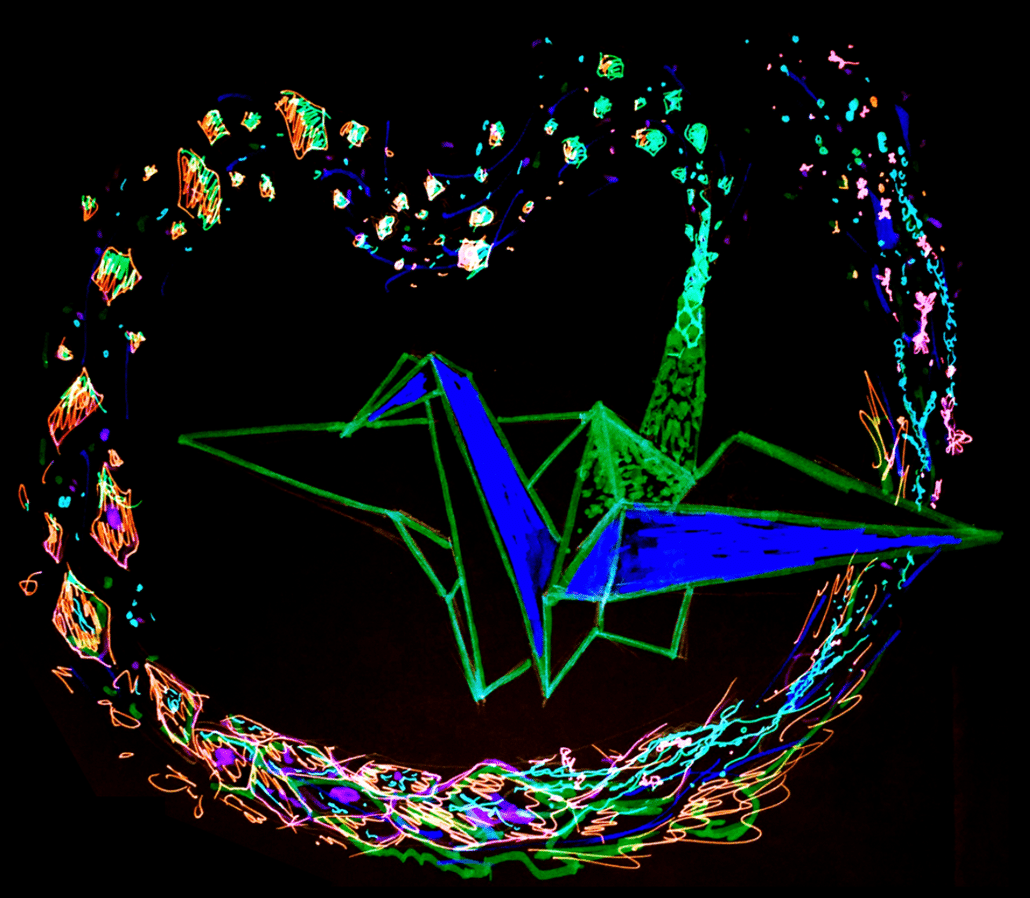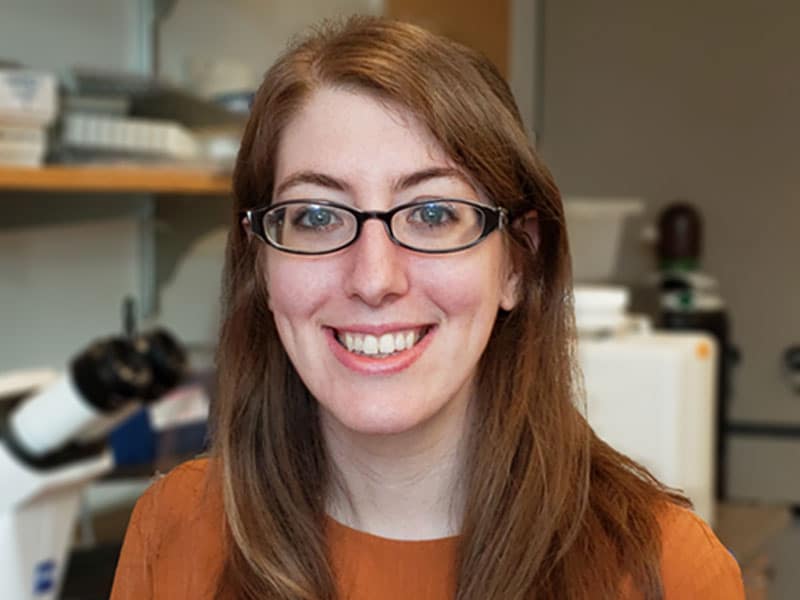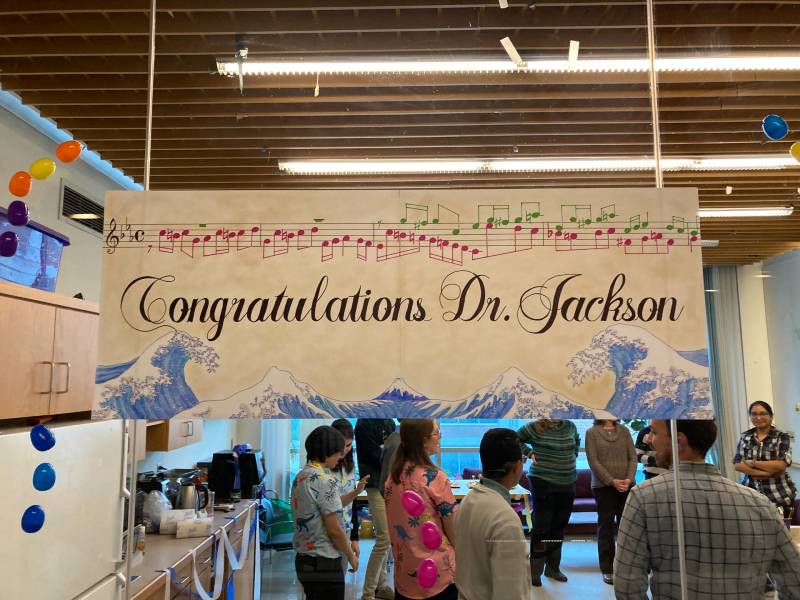To form a complex organ, simple tissues must be folded, stretched, compressed, and otherwise sculpted into a precise form in a process called tissue morphogenesis. One of the most dramatic examples of tissue morphogenesis occurs during embryonic development, when primitive planar tissues are folded to generate separate layers that will give rise to different parts of the body during gastrulation. Tissue morphogenesis requires that cytoskeletal machines generate forces that change cell shape and deform the tissue. The molecular mechanism by which the cytoskeleton generates force is not known for many of the diverse cell shape changes and tissue movements that underlie morphogenesis. Furthermore, how force generation by hundreds or thousands of cells is coordinated by biochemical and mechanical signals in a tissue is an important step to understand how cells collectively deform a tissue.
The Martin lab is interested in how tissues get their shape. Given that tissue morphogenesis fundamentally involves movement, we have developed a system to visualize and quantify the dynamics of molecules, cells, and tissues during gastrulation. We focus on mesoderm invagination in the fruit fly, Drosophila melanogaster, and mouse model system. Learn more about lab research.
“It is not birth, marriage, or death, but gastrulation, which is truly the most important time in your life.”
– Lewis Wolpert
Research in Focus
The Martin Lab studies a number of different morphogenetic processes.
The unifying theme for our research is the impact of mechanical force on cell behavior and tissue shape.

01.
Cell Holding Hands
Read about how interactions between cells direct forces in a tissue and how this makes development robust.
02.
Signaling Shapes
Read about how dynamic cell signaling leads to wave-like actomyosin and a tissue-wide gradient of actomyosin.
03.
Dividing the Right Way
Read about how cell division affects tissue folding and how forces can impact spindle orientation.
04.
Regulating Shape
Read about how different cytoskeletal systems interact and how cytoskeletal dynamics stabilize force transmission in a tissue.
Latest News
- What happens during the first moments of butterfly scale formation? An introduction to Dr. Anthony McDougal
Jennifer Chu reports on Anthony McDougal’s doctoral thesis, studying butterfly wing scale morphogenesis in Vanessa cardui.
https://news.mit.edu/2024/new-findings-first-moments-butterfly-scale-formation-0626
Original publication here https://www.ncbi.nlm.nih.gov/pmc/articles/PMC8670486/
- Martin Lab at the International Conference on Neural Tube Defects
Several members of the Martin lab – Juana De la O, Anthony Mc Dougal, and Mingmar Sherpa – will be attending the 13th annual International Conference on Neural Tube Defects at the University of British Columbia from August 11th – 14th. Juana and Anthony will be giving talks on their research, while Mingmar will be presenting a poster. Please come by and say hello!
- Mary Ann Collins published review article in Developmental Cell

Congratulations Mary Ann Collins on publishing review article on plant and animal morphogenesis in Developmental Cell!
- Congratulation Dr. Jackson!

Congratulations Dr. Jackson on defending your PhD and getting a postdoc position in Germany. Best of luck.
- What happens during the first moments of butterfly scale formation? An introduction to Dr. Anthony McDougal
Jennifer Chu reports on Anthony McDougal’s doctoral thesis, studying butterfly wing scale morphogenesis in Vanessa cardui.
https://news.mit.edu/2024/new-findings-first-moments-butterfly-scale-formation-0626
Original publication here https://www.ncbi.nlm.nih.gov/pmc/articles/PMC8670486/
- Martin Lab at the International Conference on Neural Tube Defects
Several members of the Martin lab – Juana De la O, Anthony Mc Dougal, and Mingmar Sherpa – will be attending the 13th annual International Conference on Neural Tube Defects at the University of British Columbia from August 11th – 14th. Juana and Anthony will be giving talks on their research, while Mingmar will be presenting a poster. Please come by and say hello!
- Mary Ann Collins published review article in Developmental Cell

Congratulations Mary Ann Collins on publishing review article on plant and animal morphogenesis in Developmental Cell!
- Congratulation Dr. Jackson!

Congratulations Dr. Jackson on defending your PhD and getting a postdoc position in Germany. Best of luck.
